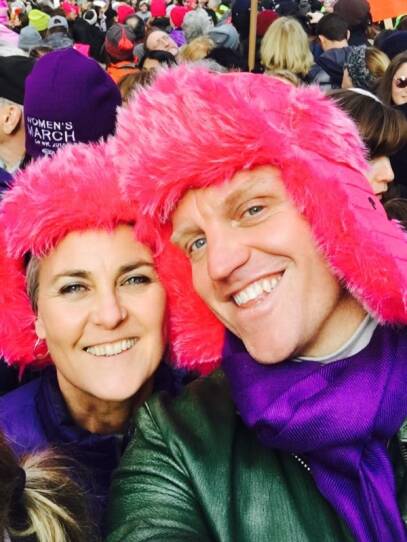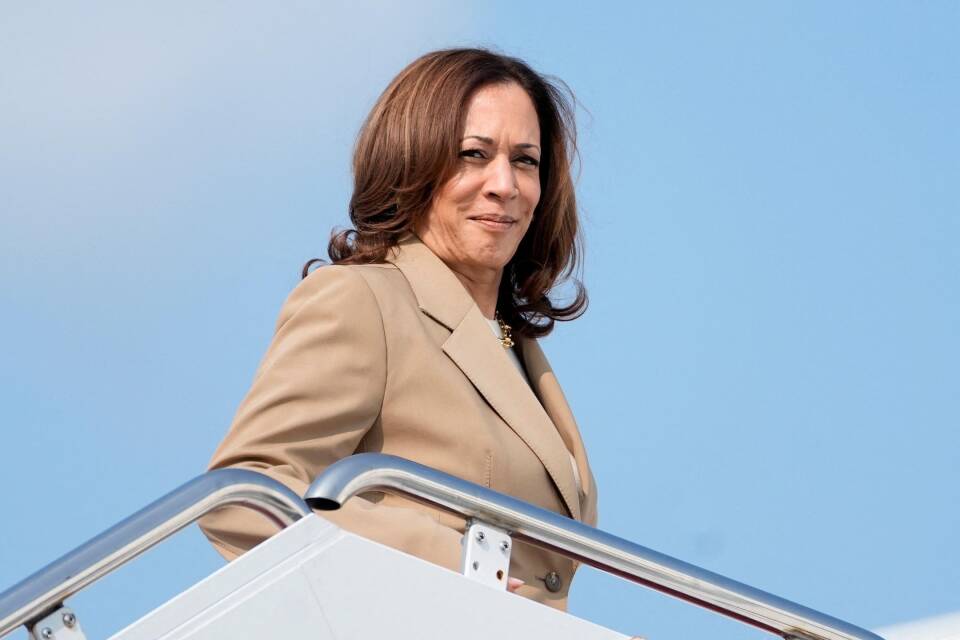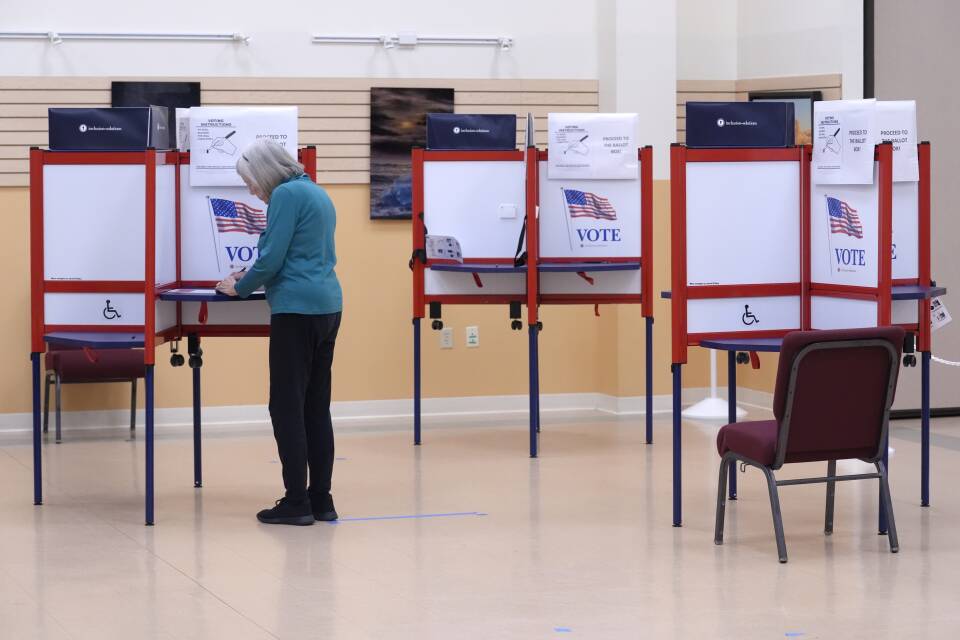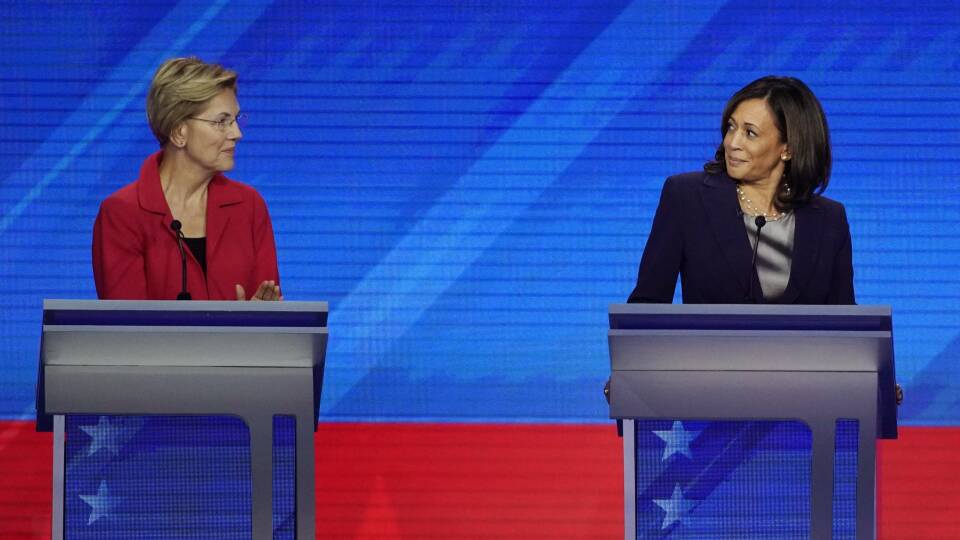Less than two weeks ago, President Joe Biden dropped out of the presidential race and endorsed Vice President Kamala Harris as the candidate he thought best positioned to beat Republican nominee and former President Donald Trump.
And though there was brief speculation of a race for succession, or the possibility of an open convention to nominate the next Democratic Party presidential candidate, all speculation was put to rest with a sudden and immediate grassroots groundswell of support for Harris from women.
Hours after Harris made her candidacy official, the group Win With Black Women mobilized a massive Zoom call that raised $1.6 million.
That was quickly followed by other virtual events seeking fundraising and support for Harris’ candidacy, including “Black Men for Harris,” “White Women: Answer the Call” and ”White Dudes for Harris“ events.There have also been calls focused on Latinas, South Asian women and other voting blocs. Harris’ election campaign said it raised $200 million in that first week alone.
Inspired by the flurry of fundraising activity, Trisha Coburn, formerly of Chestnut Hill and now living in Florida, and her close friends created a group text they named the BAHAs, or Bad Ass Harris Advocates, to represent the enthusiasm and excitement they have in common.
“We needed a new energy in this country, somebody that can stand up against Donald Trump. And the fact that she’s female and she’s Black and she’s powerful, she’s perfect for this,” Coburn said.
“I jump out of bed in the morning feeling so energized,” she added. “I feel hopeful. I haven’t felt hopeful in a really long time.”
Coburn is among the 160,000 women who joined the “White Women: Answer the Call” Zoom meeting organized by Shannon Watts, founder of Moms Demand Action, a gun safety group. According to Watts, women on that call raised over $8.5 million.
“I jump out of bed in the morning feeling so energized. I feel hopeful. I haven’t felt hopeful in a really long time.”Trisha Coburn, a voter in Florida
This past Monday night, Harris’ campaign held a “Women for Harris,” national organizing call.
This isn’t the first time women have been excited about a female candidate running for president. Hillary Clinton, the first female nominee for president, won the popular vote in 2016, but lost that election to Trump.
To some, what’s happening now feels different.
“Hillary didn’t seem to represent change quite as much, even though she was a woman,” said Martha Johnson, associate professor of political science at Mills College, at Northeastern University.
Though historically women have been excluded from the highest office, Clinton ran more of an insider campaign than Harris, according to Johnson.
“If people were discontent, it was more on the Republican side,” she said. “And then Trump was able to take advantage of that.”
The latest Associated Press-NORC poll released Wednesday shows about 8 in 10 Democrats are satisfied with Harris, compared to the 4 in 10 satisfaction rate Biden had before he dropped out of the race.
Rebecca Carr of Yarmouth, Maine, participated in two of the Zoom call meetings to support Harris. She said once Biden jumped out of the race, she knew it was time to get involved.
“I think the collective energy and unity that we’re seeing is something that I personally have never seen in the Democratic Party,” she said.
For Carr, donating money to the Harris campaign and offering support is personal. Fighting back emotions, she opened up about her struggles getting pregnant, and eventually conceiving her two daughters through in vitro fertilization. Those experiences have motivated her vote.
“The Republican Party has really stripped down women’s reproductive freedoms — and that’s on both sides of, you know, choosing to not have a child, but also the choice to have a child,” she said.

Kate Crow grew up in New Hampshire, and now lives in Red Hook, New York.
“I have two, granddaughters. And I am really afraid for the world,” she said.
Crow, who has participated in political marches in the past, including the Women’s March on Jan. 21, 2017, the day after Trump’s inauguration, joined the BAHA text group of friends supporting Harris.
Crow said the messaging by Harris to create a more equitable world, along with her stance on social justice, education and climate change counters what Crown describes as offensive policies from Trump.
“I’m so disgusted by what has gone on with the Supreme Court,” she said. “I mean, we just cannot have Donald Trump in the White House, period. That’s how I feel. And I’m thrilled that she’s the woman who’s going to unite us.”
Taking on Trump is a challenge some of these women are confident Harris can meet.
Bonnie Allen Rotenberg, who lives in Chestnut Hill and is also a member of the BAHAs text group, believes Harris can go “toe to toe” against Trump and won’t be intimidated.
“She’s not that whole male macho thing ... and I think she is the perfect antidote to Trump,” she said.
Johnson said it’s nearly impossible to predict how things will play out in November.
“Because on the one hand, Harris excites a lot of voters, and she has a strong potential to get people out to vote for her who might not have voted otherwise,” Johnson explained.
But she added that there is still a lot of sexism and racism in American politics, and the excitement over Harris may not prove strong enough to carry the election.
“It comes down to swing states,” Johnson added, “states where it may be the case that it’s a sort of more traditional voter, or it’s a sort of whiter, older male voter that might swing it.”









